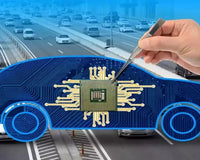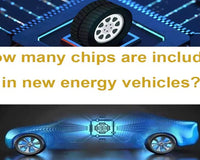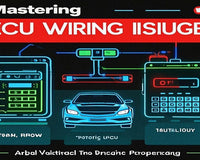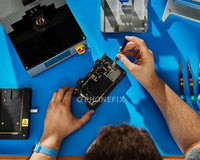
Chip tuning is a process of altering the signals within existing hardware to change how your vehicle’s engine runs.With chip tuning, we change the parameters of the engine control in order to achieve extra performance from the engine. you will have full control to tune your car however you like, whether you are looking to maximise fuel efficiency or power.
Advantages of ECU Chip Tuning:
Non-invasive: ECU chip tuning does not require physical modifications to the engine, making it a reversible process.
Customizability: The ECU can be fine-tuned to suit specific driving preferences, allowing for personalized performance enhancements.
Improved fuel efficiency: Optimizing the engine’s parameters can lead to better fuel economy, especially during normal driving conditions.
Enhanced power delivery: ECU chip tuning can unlock additional horsepower and torque, resulting in improved acceleration and overall performance.

Is Chip Tuning a Good Alternative?
Despite how sensitive and effective chip tuning is overall, there are significant drawbacks.
Warranty concerns: Modifying the ECU may void the manufacturer’s warranty, so it is essential to consider this before making any changes.
Professional expertise required: ECU chip tuning should be performed by experienced professionals to ensure proper calibration and avoid potential engine damage.
Limited gains: While ECU chip tuning can provide noticeable improvements, the extent of performance enhancement may be limited by the engine’s hardware capabilities.
Engine modifying is often a more involved and costly process compared to ECU chip tuning.

Engine modifying involves physical alterations to the engine components to enhance performance. This can include upgrading parts such as the intake system, exhaust system, turbocharger, or even engine internals like pistons and camshafts. By upgrading engine components, significant power gains can be achieved, surpassing the limitations of ECU chip tuning.
In addition, engine modifying allows for precise customization, targeting specific areas of improvement based on individual preferences and driving requirements.
However, unlike ECU chip tuning, engine modifications are typically permanent and cannot be easily reversed.And engine modifying can be expensive, requiring the purchase of aftermarket parts and professional installation. It may also involve more complex procedures, such as engine disassembly and reassembly.

Potential reliability issues: Modifying engine components can put additional stress on the engine, potentially leading to reliability and durability concerns if not done correctly.
Both ECU chip tuning and engine modifying offer ways to enhance a car’s performance, but they differ in their approach and outcomes. ECU chip tuning provides a non-invasive and customizable solution, offering improved power delivery and fuel efficiency. On the other hand, engine modifying allows for greater performance gains but involves more significant investments and potential reliability risks.
Ultimately, the choice between these methods depends on individual preferences, budget, and desired level of performance enhancement.
For more information on automotive, please visit our website:eufixtool.com









